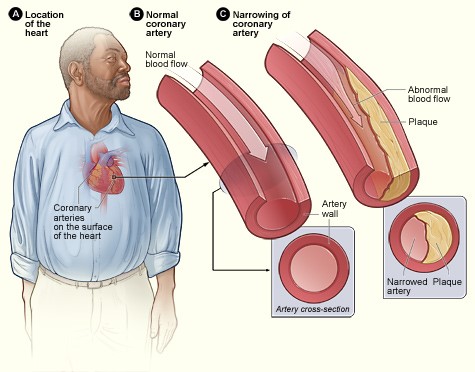Have you tested your cholesterol levels? If not, then you better go for a test. This check is important because your risk of developing heart disease or atherosclerosis goes up as your level of blood cholesterol increases.
Cholesterol is a waxy substance found in the blood. Your body makes most of the cholesterol and some cholesterol comes from the food you eat. Your body needs a little bit of cholesterol to work properly but too much cholesterol can clog your arteries and lead to heart disease.
Cholesterol is useful in the sense that it helps the body produce hormones, bile acid, and vitamin D. Cholesterol moves through the bloodstream to be used by all parts of the body.
Cholesterol is found in eggs, dairy products, meat, and poultry. Egg yolks and organ meats (liver, kidney, sweetbread, and brain) are high in cholesterol. Fish generally contains less cholesterol than other meats, but some shellfish are high in cholesterol. Fat content is not a good measure of cholesterol content. For example, liver and other organ meats are low in fat, but very high in cholesterol.
SEE: How to choose fats best for your body
Extensive research has found that processed carbohydrates and foods high in trans-fasts and artificial oils increase our risk for cardiovascular disease. Foods of plant origin (vegetables, fruits, grains, cereals, nuts, and seeds) contain no cholesterol. Fact is we need cholesterol and our bodies produce a certain percentage so we need to limit our intake of cholesterol foods.
What are the symptoms of high cholesterol?
Typically, there are no symptoms for high cholesterol but instead it causes emergencies such as heart attacks and strokes. Blood test is the only way to know if your cholesterol is too high. If you have a family history of high cholesterol, it is recommended that you have your cholesterol levels checked frequently.
In order to help prevent and manage high levels of “bad” LDL cholesterol and triglycerides while increasing “good” high-density lipoprotein cholesterol levels. Try to:
- Eat less saturated fats, which comes from animal products (like cheese, fatty meats, and dairy desserts) and tropical oils (like palm oil).
- Stay away from trans-fats, which may be in baked goods (like cookies and cake), snack foods, fried foods, and margarines.
- Limit foods that are high in cholesterol, including fatty meats and organ meat (like liver and kidney).
- Choose low-fat or fat-free milk, cheese, and yogurt.
- Eat more foods that are high in fiber, like oatmeal, oat bran, beans, and lentils.
- Eat a heart-healthy diet that includes plenty of vegetables and fruits and is low in salt and sugar.
READ: Why women live longer than men in Kenya
Since high cholesterol doesn’t show any symptoms in the early stages, it’s important to make good lifestyle choices.
- Eat a healthy diet.
- Maintain an active lifestyle by having an exercise routine
- Monitor your cholesterol levels by regular checkups.













Thanks this is educative